TRAINING IN ORGANISATIONAL MEDIATION
Conflict management in the world of business and labour
Training location Leipzig – Start March 2026
OBJECTIVES OF THE ORGANISATIONAL MEDIATION TRAINING COURSE
Our goals
- Important for internal and external organisational staff: React flexibly and appropriately in opaque conflict situations.
- Act confidently and confidently in the VUCA WORLD: Mediation training develops your conflict, communication and system competences. This is vuka-appropriate personal development.
- Strategic conflict management in and for organisations: We favour strategically oriented mediation for organisations.
Overview of courses and dates Organisational mediation training (OMED)
March 2026
- if applicable. Basic mediation training (LINK, Modules 1-5)
- Module 6: 26 March – 28 March 2026
- Module 7: 23-25 April 2026
- Module 8: 21-23 May 2026
- Module 9: 18 June – 20 June 2026
März 2027
- if applicable. Basic mediation training (LINK, Modules 1-5)
- Modul 6: 11. – 13. März 2027
- Modul 7: 22.-24. April 2027
- Modul 8: 20.-22. Mai 2027
- Modul 9: 17. – 19. Juni 2027
WHAT YOU CAN EXPECT
Didactic training concept
- They are trained on the basis of our didactically well thought-out and unique training and further education concept.
- Right from the start, we train you to think about the organisation's perspective and act accordingly.
- You benefit from our extensive and high-quality practical experience in complex organisational contexts.
- You will receive our legendary flashcards on the elements of mediation as well as in digital online format (www.elemente-der-mediation.de).

Elements of mediation
Our learning and knowledge management tool
1 system,
5 main groups,
48 elements,
over 500 index cards.
Our system for the theory and practice of mediation, conflict coaching and organisational consulting.
Organise learning processes in an accessible way,
Structure knowledge openly.


Your trainer Prof Dr Sascha Weigel
Prof Dr Sascha Weigel, mediator and trainer (BM), senior coach (DBVC), teaching transactional analyst under supervision PTSTA-O (EATA/DGTA)
Information video on the training programme
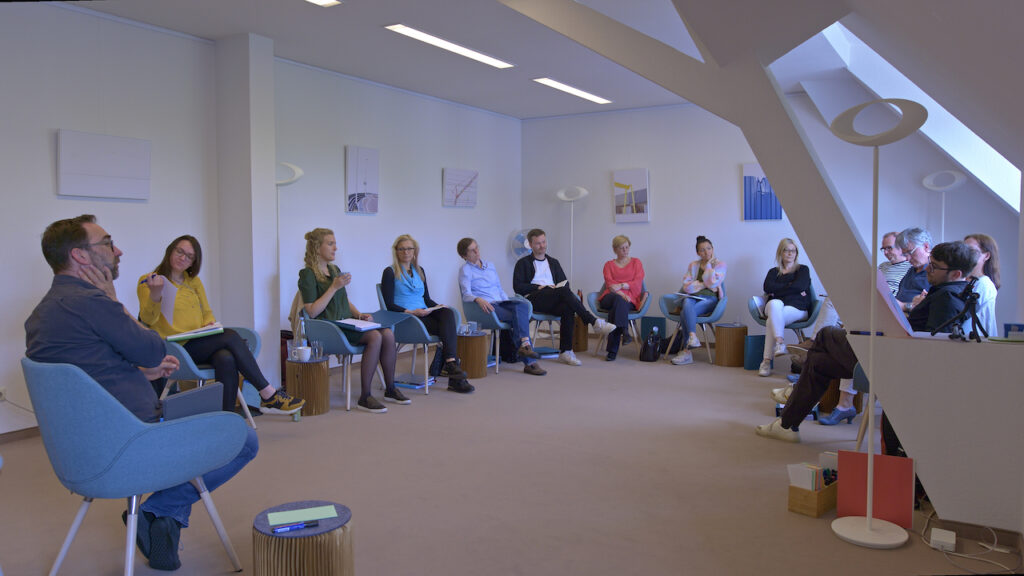
MODULES OF THE TRAINING IN ORGANISATIONAL MEDIATION
(Click on the crosses for more information)
INFORMATION AND CONDITIONS
TRAINING IN ORGANISATIONAL MEDIATION
(Click on the crosses for more information)
VOTES FROM PARTICIPANTS
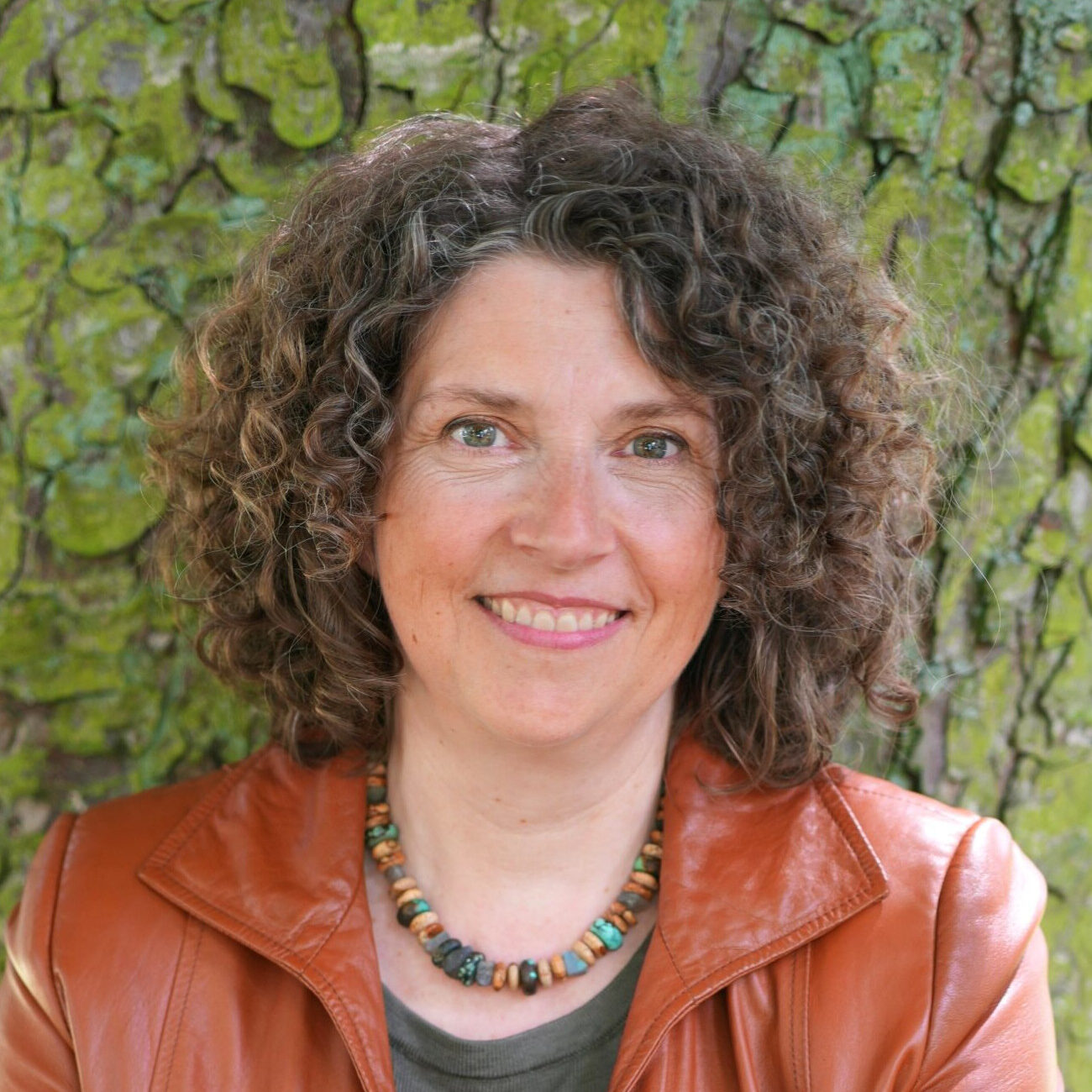
Anke Larro-Jacob, Zertifizierte Mediatorin BM®, Diplom-Psychologin
"Als „alter Hase“ im Bereich Organisationsentwicklung, Coaching und Konfliktbearbeitung habe ich schon viele Fortbildungen besucht. Die Ausbildung Organisationsmediation bei Prof. Dr. Sascha Weigel und Angelika Wendt kann ich voller Überzeugung weiterempfehlen.
Der Rahmen stimmte für mich rundum: Die kulturell interessante Umgebung der Baumwoll-Spinnerei, ein heller, großzügiger Seminarraum mit Gruppenräumen, eine sympathische und vielfältige Gruppe aus unterschiedlichen Branchen and the großzügige Pausen-Verpflegung sorgten für ein angenehmes Lernumfeld.
Der Inhalt überzeugte durch Tiefe und Praxisnähe: Die umfangreichen Kursunterlagen mit regelmäßigen Kursbriefen, die Fallarbeit an realen Fällen der Ausbilder und der Gruppe, Supervisionsmöglichkeiten sowie anspruchsvolle Rollenspiele boten einen gelungenen Mix aus Theorie und Praxis. Besonders wertvoll war für mich die Systematisierung im „Elementesystem der Mediation“ sowie die Integration von KI-Anwendungen in der Mediation – ein wesentlicher Grund für meine Entscheidung für INKOVEMA.
Die Ausbildung verlief in einer Atmosphäre voller Benevolence and Humor, ressourcenorientiert und gleichzeitig professional. Die Fülle an Informationen aus den Kursmaterialien, Podcasts und Artikeln bietet Inspiration weit über die Ausbildungszeit hinaus. Besonders schätze ich, dass Sascha die Inhalte durch regelmäßige Interviews mit interessanten Gesprächspartnern der Branche kontinuierlich aktualisiert.
Für mich als Psychologin war der juristische Blick auf Konflikte und Konfliktbearbeitung eine wertvolle Ergänzung für meine Arbeit als Mediatorin. Gleichzeitig konnte ich gut an Bezüge zur Transaktionsanalyse anknüpfen. Das Thema KI wurde immer wieder aufgegriffen und praktisch angewendet – meine Erwartungen wurden voll erfüllt und ich freue mich auf weitere spannende Impulse!.“
ANKE LARRO-JACOB, Zertifizierte Mediatorin BM®, Diplom-Psychologin, Coach, Systemische Therapeutin (DGSF), Organisationsentwicklerin, Ausbildung Organisationsmediation 2025
VOTES FROM PARTICIPANTS

ANJA BENKE, PERSONAL AND ORGANISATIONAL CONSULTANT, mediation training and further training 2019
After an initial mistake at another training institute, I was impressed by you from the very beginning. totally enthusiastic ...you have created a great education...and with an ideal group, personalities from different industries, age groups, professions...in short: a perfect learning environment. I am a real fan and would recommend the training programme to others at any time.
ANJA BENKE, PERSONAL AND ORGANISATIONAL CONSULTANT, mediation training and further training 2019
Dr Ute Enderlein, lecturer at the Department of Digital Administration i.Gr. at Meißen University of Applied Sciences (FH) and training centre, GAMED/OMED 2020/21
The INKOVEMA training course in organisational mediation conveys...an important basic attitude: we should recognise the "reality of conflict" and deal with conflicts with an open and courageous attitude, professional methods and on a solid legal basis.
INKOVEMA's training in organisational mediation is also a A successful bridge to change management and profitable for every organisation in change processes such as digital transformation. As a lecturer at the University of Applied Sciences for Public Administration of the Free State of Saxony, I have not only taught Sound knowledge won, but also lots of practice and exercise, which I will apply as a mediator in specific organisational development processes.
Dr Ute Enderlein, lecturer at the Department of Digital Administration i.Gr. at Meißen University of Applied Sciences (FH) and training centre, GAMED/OMED 2020/21

Simon Lenk, employee in a municipal corporation, Department for Strategic OE, mediation training 2020
For me it was a Top-class training. Sascha always teaches in a practical manner, sharing the experience gained from his many years as a mediator and embedding the content in the dynamics of society and organisations. All this with a lot of humour and sensitivity.
Simon Lenk, employee at a Leipzig-based company, mediation training 2020
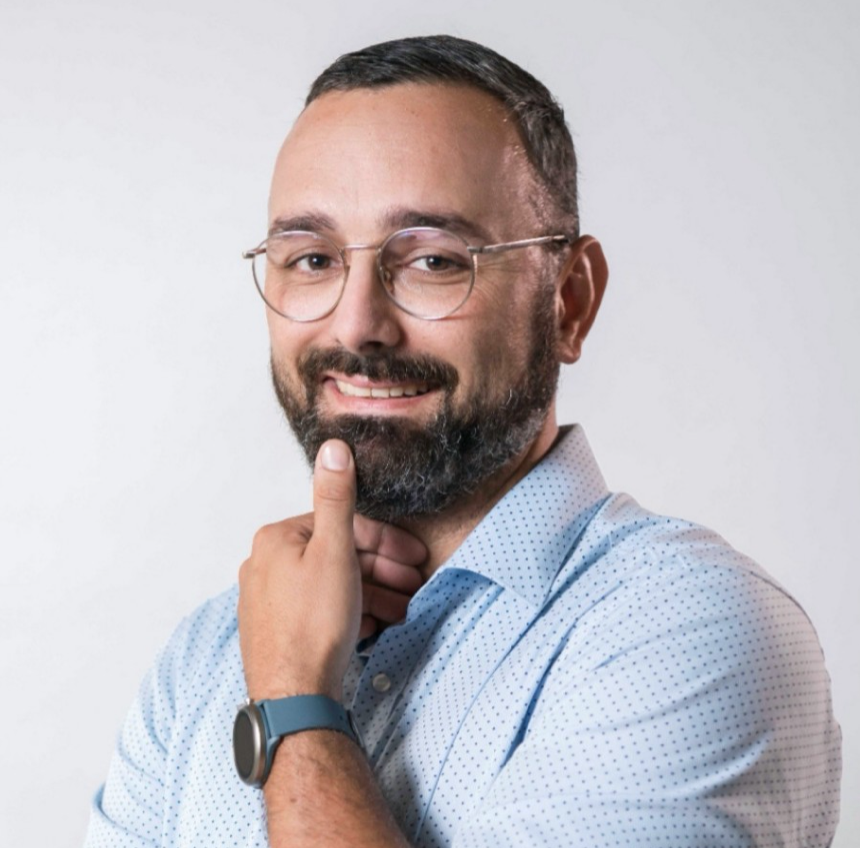
STEPHAN BADER, Senior Director HR/Syndicus, European Air Transport DHL Express Leipzig GmbH, participant 2020
Of course, you can go elsewhere and do seminars and training courses there, but why? Here the quality is right, the content and presentation are at the highest level. Simply great.
STEPHAN BADER, Senior Director HR/Syndicus, European Air Transport DHL Express Leipzig GmbH, participant 2020
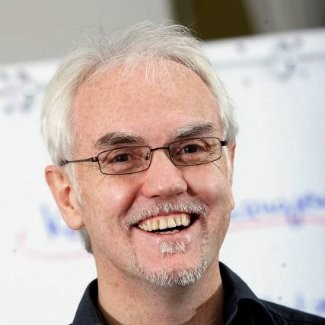
GÜNTHER MOHR, counsellor, training coach and transaction analyst, mediation training 2017
The decisive factor with INKOVEMA is the combination of a solid legal background, a dialogue-based approach and the explanatory content of transactional analysis models. This combination makes mediation a powerful instrument.
GÜNTHER MOHR, counsellor, training coach and transaction analyst, mediation training 2017

Dr Stefanie Buchmann, Head of the Legal Department, Friedrich Schiller University Jena, mediation training 2019
The training you offer with INKOVEMA is very demanding, very appealing and rhetorically so pleasant and so well-founded in terms of content
Dr Stefanie Buchmann, Head of the Legal Department, Friedrich Schiller University Jena, mediation training 2019

NADINE GRAUPNER, Saalekreis district administration, mediation training 2019
I am absolutely satisfied with the mediation training at INKOVEMA and have learnt a lot in the five modules, which I am now putting into practice.
NADINE GRAUPNER, Saalekreis district administration, mediation training 2019
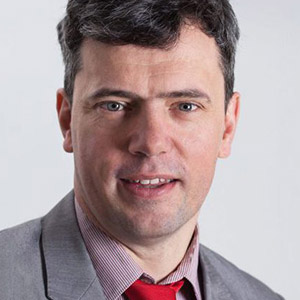
Attorney Thomas Leib, Leipzig, 2017
...the idea that we lawyers work in a highly stressful profession was already clear to me beforehand - what wasn't tangible was what to do about it. I only realised this during my training - and I will definitely keep at it.
...the idea of the trial is now much more prevalent. As lawyers, we are moulded in scientific work, in prevailing opinions and minority opinions. We have not been sensitised to the subtleties of a process, just as we have not been trained to ask questions and learn to communicate in order to allow the process to develop at all. DTraining has shown me completely different ways of approaching situations (also openly) and accepting the process.
Attorney Thomas Leib, Leipzig, 2017